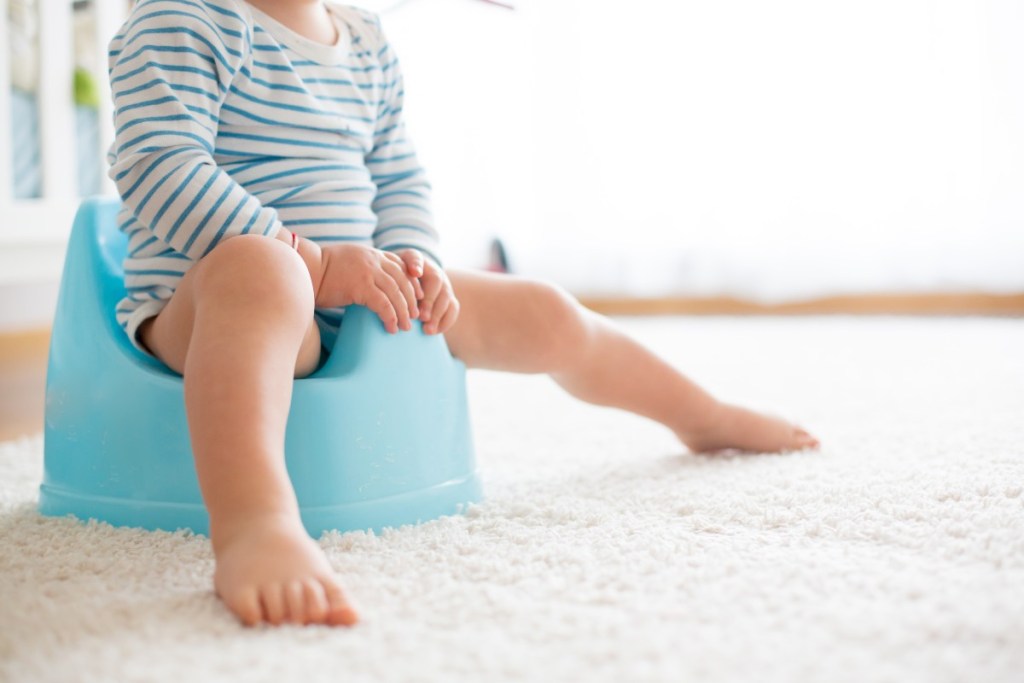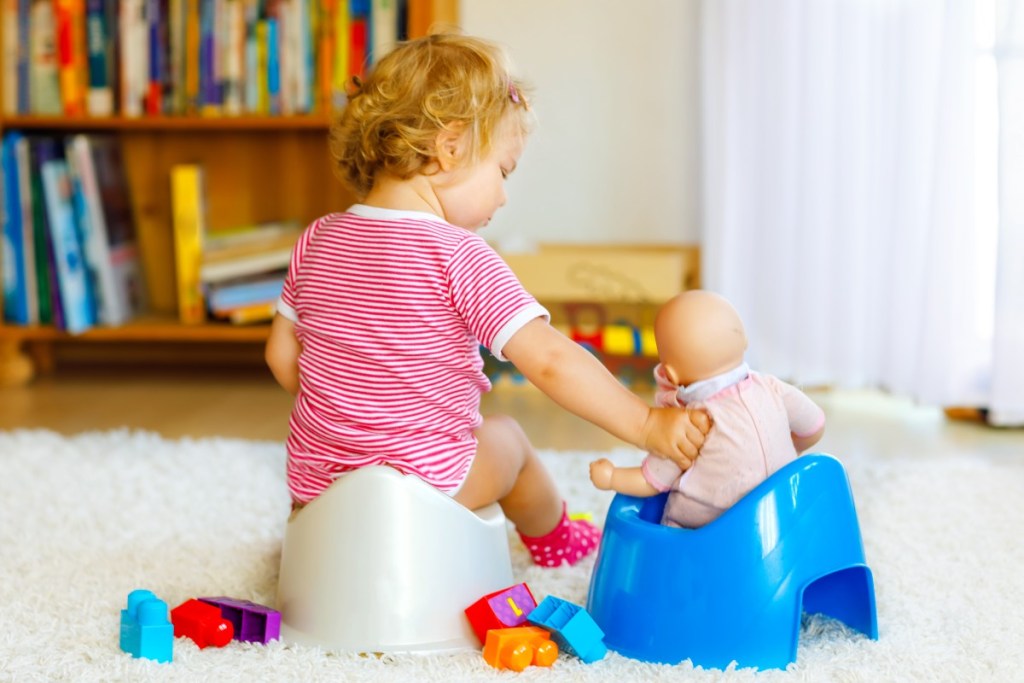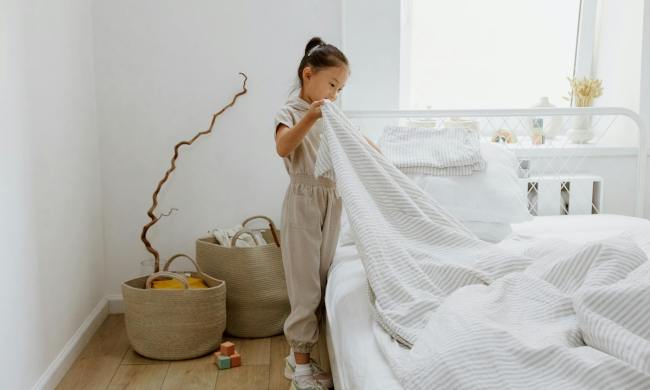Welcome to potty training. It’s going to be a wild ride. Fortunately, it doesn’t have to be a long one. There are lots of different potty-training methods to choose from; while you could take a gradual approach, you may decide to rip off the proverbial Band-Aid and expedite this otherwise tedious process. It’ll take concentrated effort and will power, but you and your toddler can achieve this major milestone in just three days.
Do you have 72 hours to spare? You’re about to experience success and setbacks, excellence and accidents — plus, a whole lot of poops and giggles.

Is your child ready?
Ask yourself: Is my child ready to potty train? If your little one doesn’t seem eager or is actively resistant, you may want to wait. There’s no right or wrong time — so shut out external pressure and do what works for your family.
On the other hand, if your toddler is showing signs of readiness — hiding during poops, holding their hands by their bottoms, etc. — it may be worth your while to get this potty party started.
What is the three-day approach?
Based on Lora Jensen’s approach outlined in her book 3-Day Potty Training, this technique is essentially a crash course in, well, listening to your body and going to the bathroom. It entails committing to 72 straight hours of potty-training vigilance; it’s certainly not for everyone, but it can be efficient and effective.
Time your three days strategically
Strategically schedule your three days of potty training so that you can be with your child throughout the process. (A three-day weekend is often ideal.)
Set yourself up for success by premaking meals and preparing some indoor activities. These days are going to be focused, so you want to free yourself of extraneous obligations. Use this lead-up time to talk to your child and prepare them for what’s to come.

What to do on Day 1
You’re off for the races. Take a deep breath, it’s going to a long day. Here’s how to structure your first 24 hours on the potty train:
- Bid diapers adieu. Set the clock; your 72 hours of hard work begin now! When your little one gets up in the morning, make a ceremony of taking off their diaper and bidding it farewell.
- Go commando. Your sweetie might be delighted to learn that, for the next few days, their wardrobe will remain minimalistic. You don’t want them to struggle while trying to get on the potty — so keep it simple. A tee or nightgown will suffice; if you want to put them in cotton underwear, that’s fine, too. Otherwise, let them be free.
- Drink up. At breakfast and beyond, go heavy on the liquids! You want them to have to go to the bathroom frequently so that they quickly recognize the sensation that means they have to go and also learn the natural consequences of failing to make it in time.
- Try every 20 minutes. Set a timer; you will want to ask your child if they have to go and escort them to the bathroom every 20 minutes. They’ll most likely say no or try to avoid the trip, but encourage any effort. If they really fight the bathroom, try putting a portable kiddie potty in the room you’re in and encourage attempts after every activity transition. Additionally, watch for those telltale gotta-go cues — that squirmy wormy toddler of yours probably has to pee!
- Stay inside. The harrowing part of this experience is that you and your kid may end up with a case of cabin fever. The potty-training journey is a monotonous one. But it’s important to stay close to the toilet for this first 24 hours. To that end, be prepared with activities and, yes, screen time.
- Celebrate successes. A tinkle or a No. 2 in the potty is exciting. If your child is motivated by your enthusiasm, throw a spontaneous dance party. If they seem unnerved, keep your reaction low key. Either way, affirm their success. Of course, be mindful that accidents will happen. Don’t scold or react negatively. Punishing a child can actually set their progress back.
- Bedtime routine. To diaper or not to diaper, that is the question. You can introduce a pull-up or return to a traditional diaper as your little one is about to drift off. You can also try waking them up in the middle of the night (if you like to live on the dangerous side!) to try for a wee-hour wee-wee.
More of the same Days 2 and 3
You’re 24 hours in — no backing down now. The next two days will look pretty much the same — lots of quality indoor snuggle time with your pants-free cutie-pie and a whole lot of back-and-forth to the potty. Keep them drinking and trying — this tedium will pay off soon. In the meantime, if you need to go outside to play or take a local trip, bring a portable potty with you. Ideally, you should try to stay at home to reinforce the bathroom routine.
Every child is different. It may instantly click for your kiddo — or it could take a bit more time. If they resist potty training in three days, show yourself (and them) some grace and love. This transition can be jarring for some kids; they may benefit from a slower, more gradual approach. Either way, you’re not failing — and neither is your little one. It’ll happen in time!


